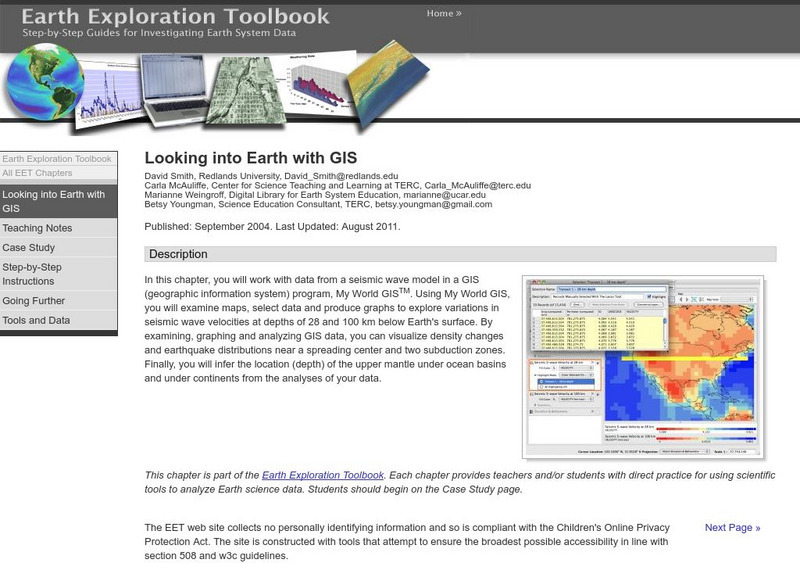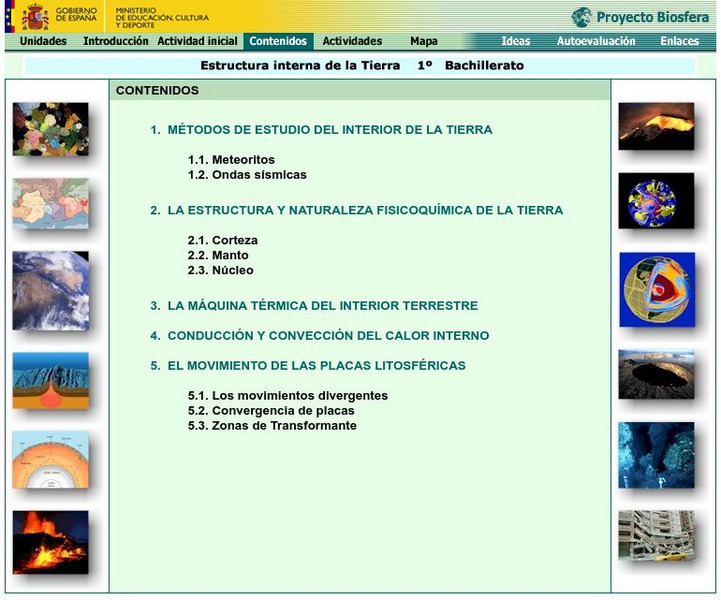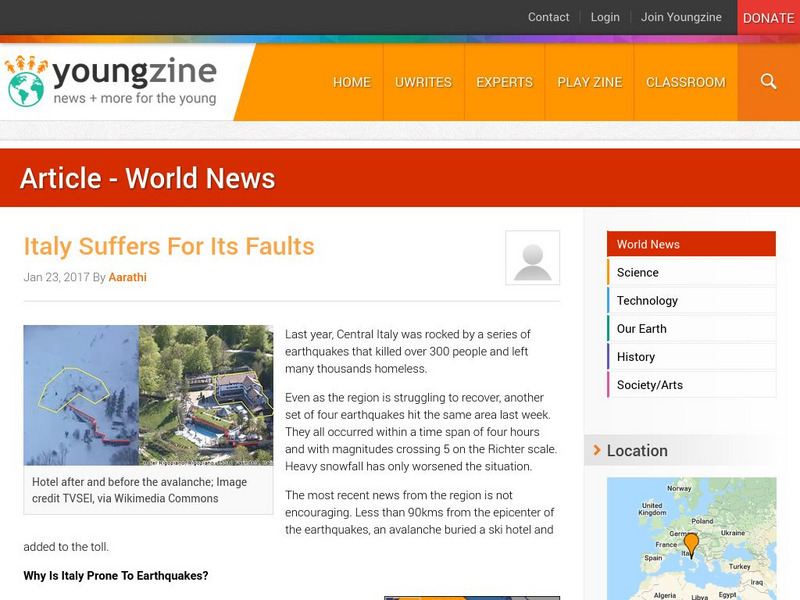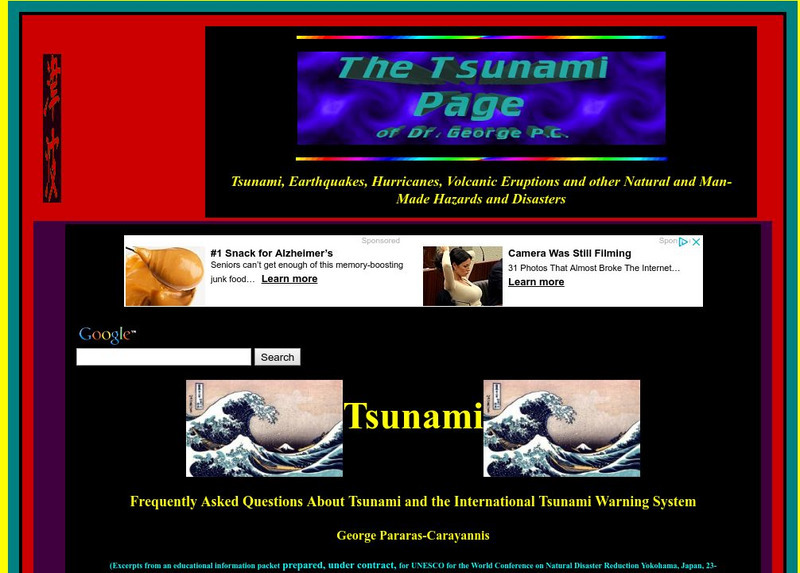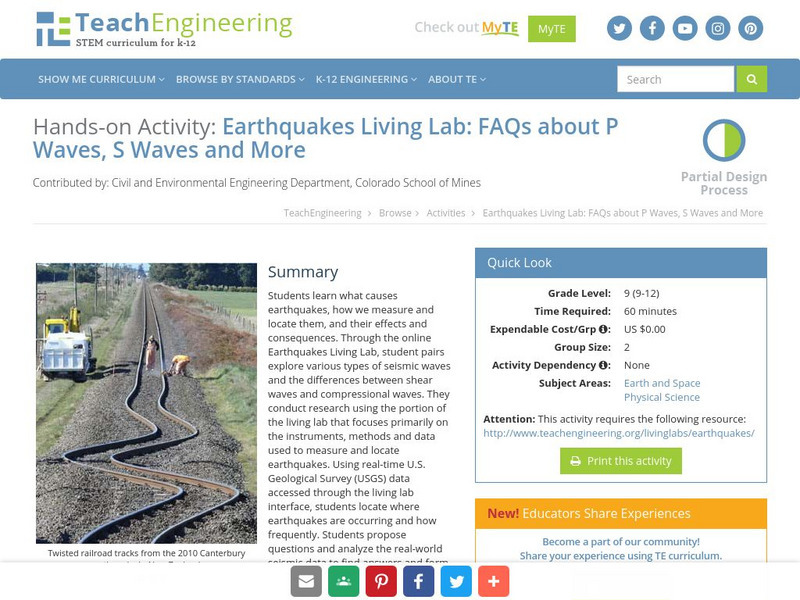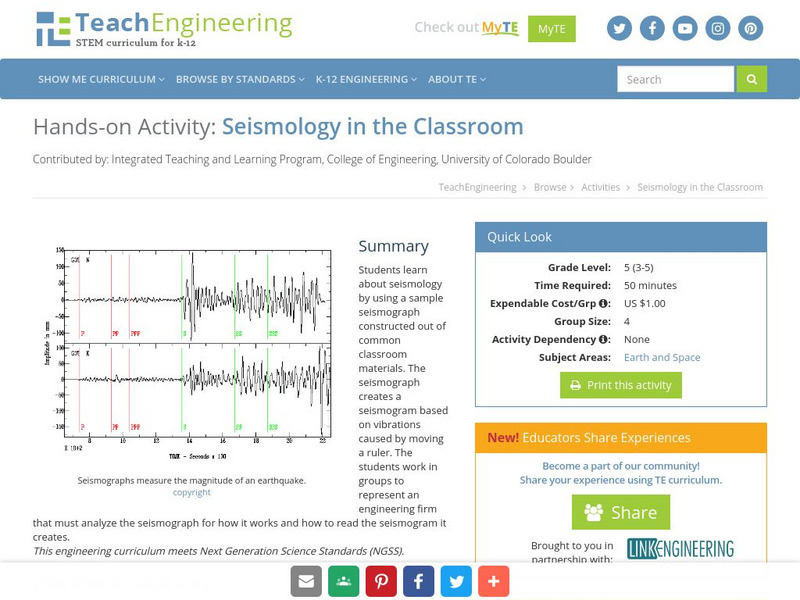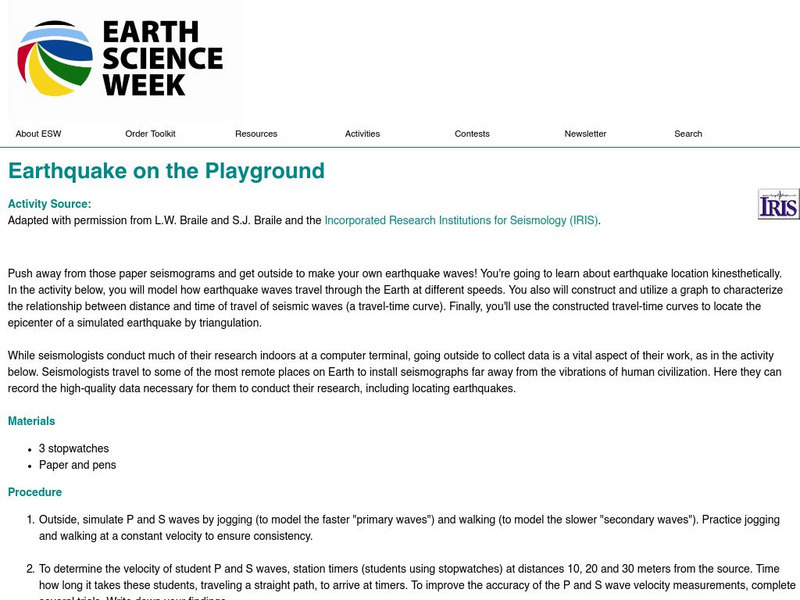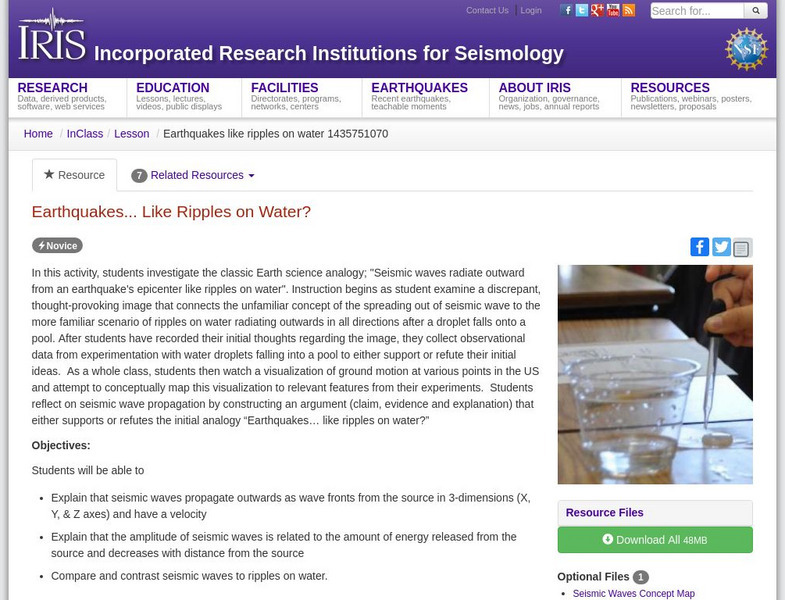Purdue University
Purdue University: An S and P Wave Travel Time Simulation
A classroom simulation modeling how earthquake waves travel through Earth at different speeds. A graph is constructed to demonstrate the relationship between the distance and time of travel of seismic waves, and then used to locate the...
Other
Tulane University: Earthquakes and Earth's Interior
College instructor's notes on seismology includes earthquake origins, seismic waves, risks and damage assessments, and other information about the interior structure of the Earth.
US Geological Survey
U.s. Geological Survey: Rock'n on Shakey Ground [Pdf]
The basics of earthquake science including factual information about how and why they happen. Also includes some hands-on activities and experiments for students.
Energy4Me
Energy4me: Exploring Sound Waves
This activity explores the behavior of sound waves. Learn how to test how sound travels through different types of rock.
Science Education Resource Center at Carleton College
Serc: Looking Into Earth With Gis
Multi-instructional activity activity where learners will work with data from a seismic wave model in a GIS (geographic information system) program. They will examine maps, select data, and produce graphs to explore variations in seismic...
California Institute of Technology
Cal Tech: The Great 1857 Fort Tejon Earthquake
Basic information about the 1857 "Fort Tejon" Earthquake, along with comparison to other quakes, location of the epicenter, and faults involved.
National Institute of Educational Technologies and Teacher Training (Spain)
Ministerio De Educacion: Los Cambios en El Medio Natural Ii
In this unit you can learn about the deformation of rocks, magmatism, plutonism and seismic waves. It has 16 interactive activities.
US Geological Survey
Usgs: November 29, 1975 Kalapana
Describes details of the earthquake of November 29, 1975 Kalapana in Hawaii, the tsunami, and the eruption of the volcano Kilauea as a result of the earthquake.
National Institute of Educational Technologies and Teacher Training (Spain)
Ministerio De Educacion: Estructura Interna De La Tierra
In addition to exploring the inside of the earth, this unit will explore the consequences on the dynamics of the outer layers; it will deepen the knowledge of plate tectonics and the movement of the plates in the past. It includes 16...
Youngzine
Youngzine: Italy Suffers for Its Faults
Leran why the geology of Italy results in earthquakes in the region.
Ready
Ready: Kids: Earthquakes
This resource explains earthquakes as well as what you should do to protect yourself before, during, and after an earthquake.
TeachEngineering
Teach Engineering: Earthquakes Living Lab: Epicenters and Magnitudes
Students learn how engineers characterize earthquakes through seismic data. Acting as engineers, they use real-world seismograph data to locate earthquake epicenters via triangulation and determine earthquake magnitudes.
Other
Disaster Pages: The Tsunami Page
FAQs about tsunamis address the reasons they occur and the destruction they cause. Also, learn about systems in place that provide Tsunami warnings as well as the data collected by scientists studying violent earthquakes and seismic sea...
TeachEngineering
Teach Engineering: Earthquakes Living Lab: P Waves, S Waves and More
Students learn what causes earthquakes, how we measure and locate them, and their effects and consequences.
TeachEngineering
Teach Engineering: Seismology in the Classroom
Students learn about seismology by using a sample seismograph constructed out of common classroom materials. The seismograph creates a seismogram based on vibrations caused by moving a ruler. The students work in groups to represent an...
American Geosciences Institute
American Geosciences Institute: Earth Science Week: Earthquake on the Playground
In this experiment, students go outside and create a simulation of P and S waves traveling across a 30-meter span. This is repeated using a 30-meter square. They experiment with P and S wave behavior, record results, and use...
Incorporated Research Institutions for Seismology
Iris: Earthquakes, Like Ripples on Water?
In this activity, students investigate the classic Earth science analogy, "Seismic waves radiate outward from an earthquake's epicenter like ripples on water."
Indiana University
Indiana University Bloomington: Modeling Liquefaction [Pdf]
This activity allows students to observe a small-scale model of liquefaction, a hazard associated with strong-magnitude earthquakes. The sand, water, and ping pong ball(s) represent the composites of soil: sediment, water, and air,...
American Geosciences Institute
American Geosciences Institute: Earth Science Week: Modeling Earthquake Waves
Students model earthquake waves with a slinky toy.



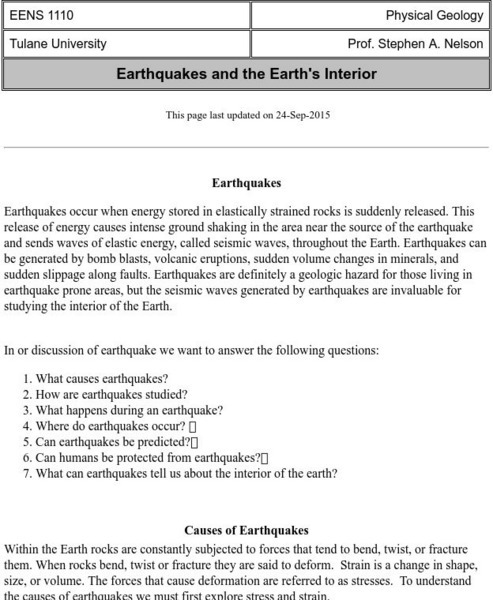
![U.s. Geological Survey: Rock'n on Shakey Ground [Pdf] Handout U.s. Geological Survey: Rock'n on Shakey Ground [Pdf] Handout](https://d15y2dacu3jp90.cloudfront.net/images/attachment_defaults/resource/large/FPO-knovation.png)
